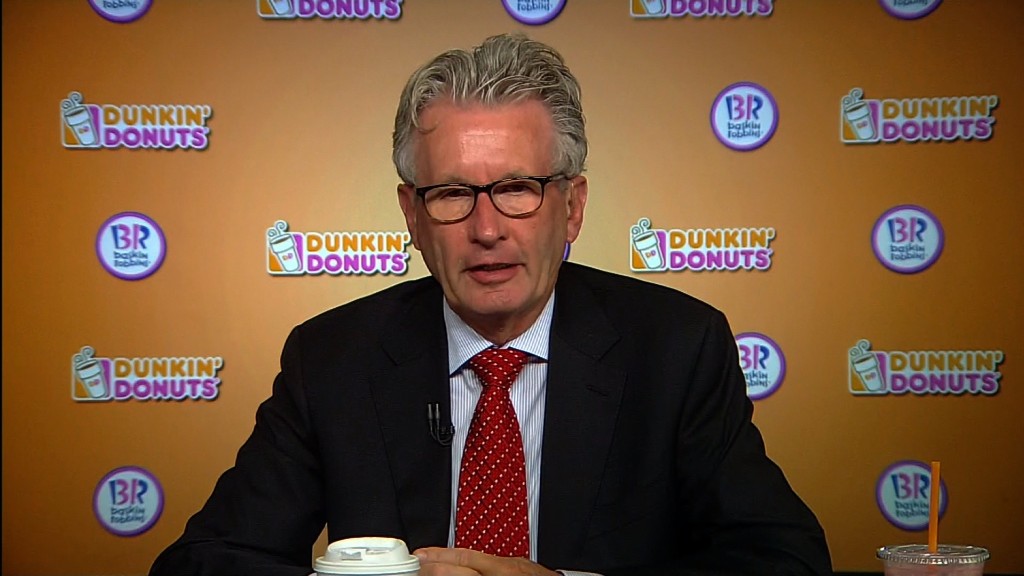
New York's new $15 minimum wage for fast food workers applies to more than 100 brands doing business in the state. The only criteria: They must operate in at least 30 locations nationwide.
That suggests only the big guns -- like McDonald's (MCD) and Dunkin' Donuts (DNKN) -- would be hit with the targeted wage hike, which will represent a 71% increase when it fully takes effect in 2021.
But since in many cases, fast food franchises are operated by individuals, that means the new mandatory pay increase will take a toll on small business owners like Laura Jankowski.
Jankowski owns three Tropical Smoothie Cafe franchises on Long Island. The brand has 16 locations in New York and more than 400 nationwide.
Related: List of franchise brands that will have to pay $15
Research suggests that most fast food workers in New York are 22 or older. But Jankowski says the vast majority of her employees are high school and college students. Most earn $8.75 an hour but her shift leaders earn $9.75.
As it is, due to previous state-mandated wage hikes, Jankowski said she paid an additional $24,000 last year at her busiest cafe, and $15,000 to $18,000 more at each of her other locations. Those amounts will nearly double this year.
The new higher minimum wage -- which will be bumped up every year starting in 2015 until it reaches $15 -- means Jankowski will have to raise prices and likely hire fewer employees.
She said she already has increased prices due to the previous wage hikes plus increases in her food and rent costs.
"There's not much more wiggle room [to increase prices without losing customers]," she said. "I'm going to have to cut crew."
Related: CEO says $15 minimum wage hurts teen jobs
Even small business owners that are not subject to the fast food wage hike may start to feel pressure to boost their pay to compete for workers.
Howard Nielsen owns Sticky Lips BBQ, a barbeque restaurant with two locations in Rochester, New York. His business employs between 150 and 190 people depending on the season.
Nielsen said he's not sure exactly how the situation will play out, but he anticipates that attracting the labor he needs will be tougher because of the increased minimum at nearby fast-food places.
"To get a good quality grill guy, I'll be at a disadvantage now," Nielsen said.
Like Jankowski, he's already had to pay more for recent hikes in the state's overall minimum wage, which will hit $9 next year. The increase in the tipped minimum wage alone to $7.50 from $5.00 costs him $178,000 a year. He has also faced increased dairy and meat costs.
There are limits to how much Nielsen can raise his prices, because the local economy isn't great, he said. "I have to find people who can afford my meals."
Nielsen notes that in general he favors minimum wage increases. "But we have to do it in a way that consumers and businesses can adjust to the wage increase in a way that doesn't hurt both of us," he said.
The New York change, which was passed by a board of the state's labor department, is expected to get final approval by the labor commissioner.
No one can say for sure yet whether the potential benefits of a $15 minimum wage -- such as giving workers more disposable income and lifting people out of poverty -- will outweigh the potential negatives. The question is especially murky in New York's case, where it only officially applies to one industry.



